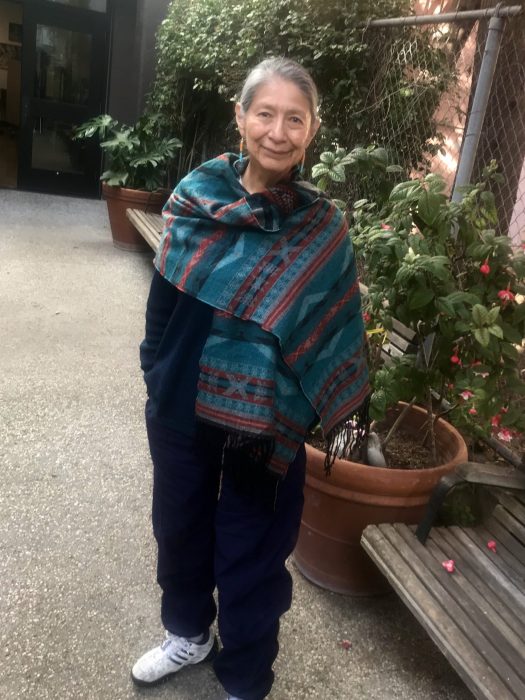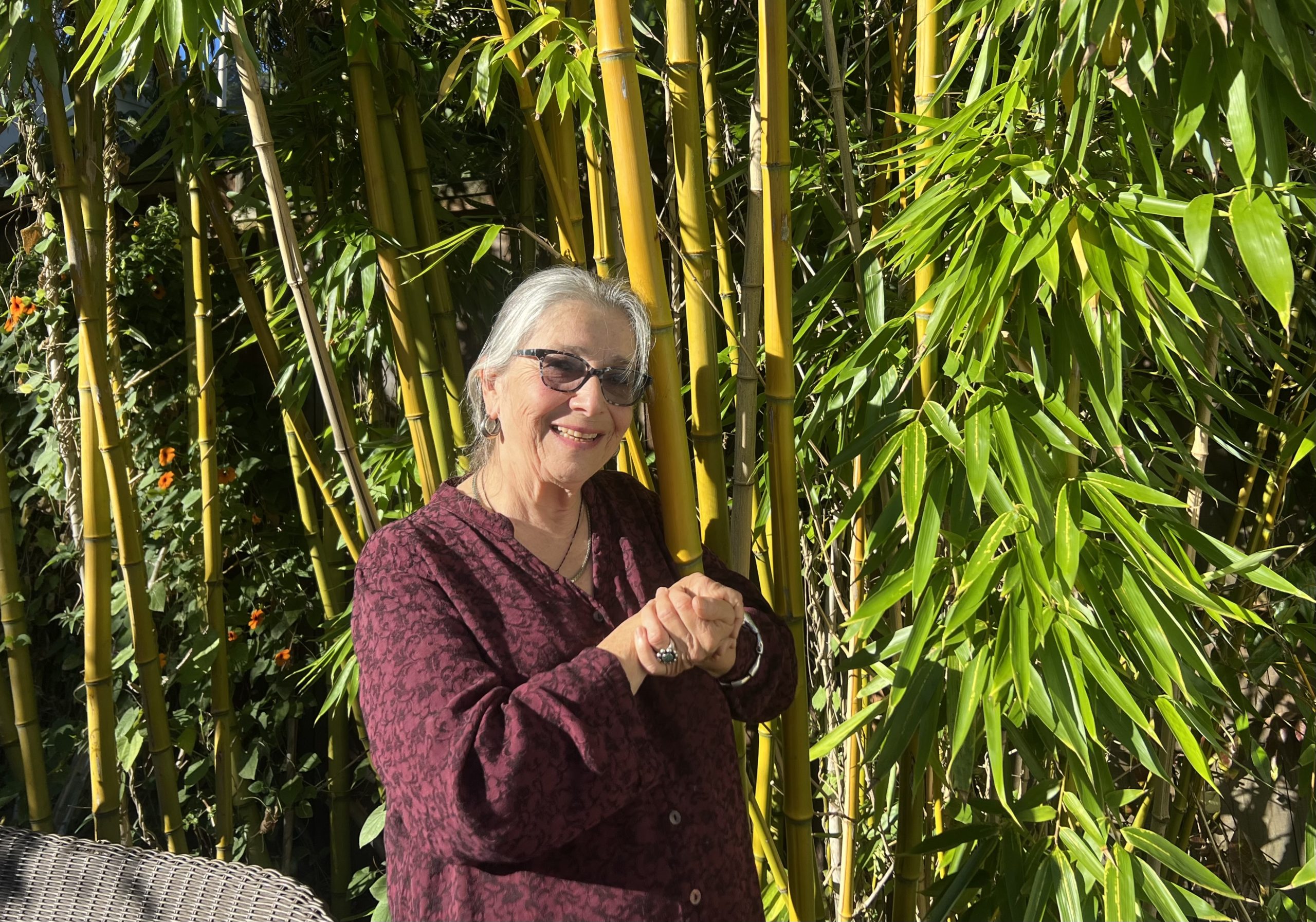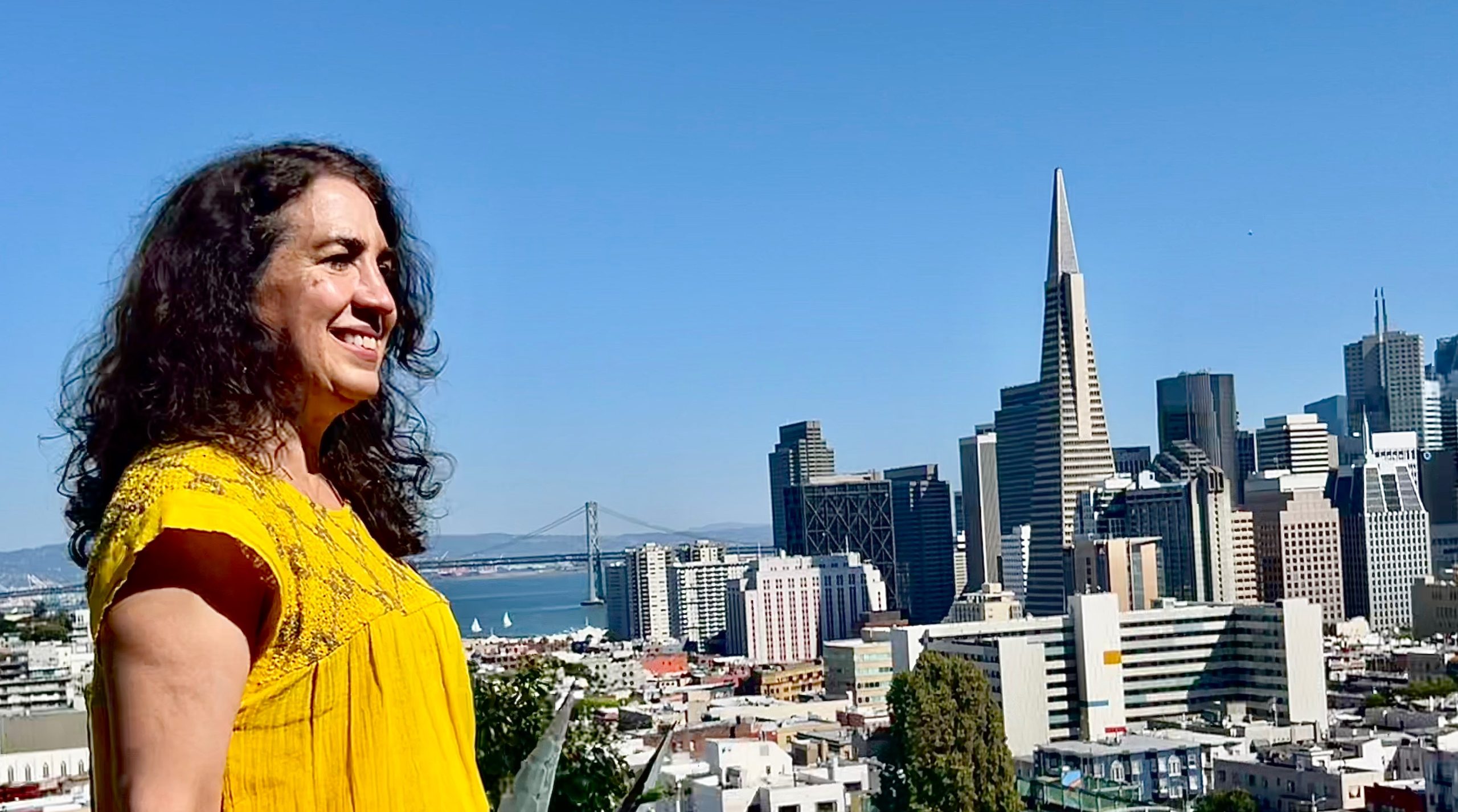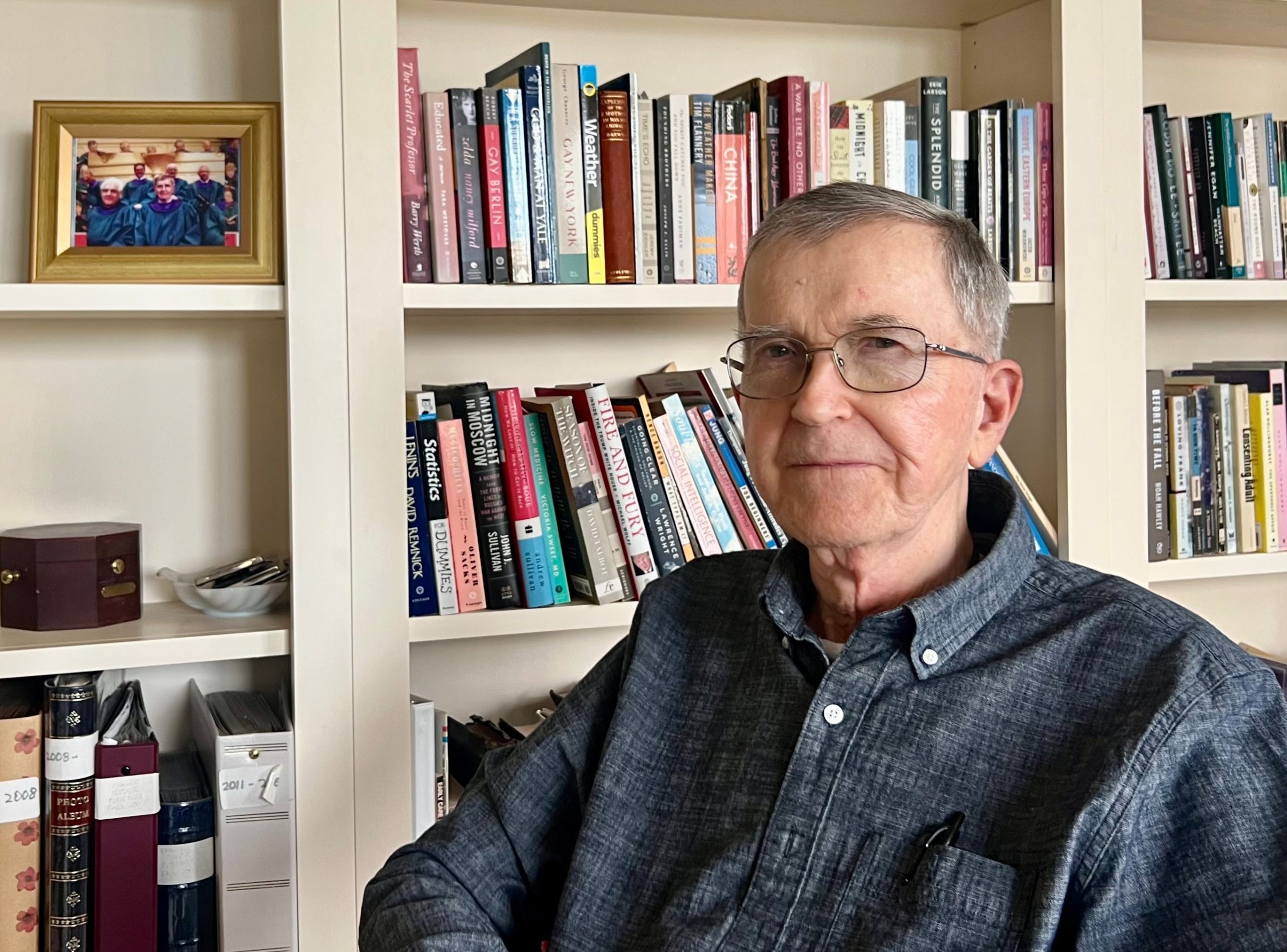Reframing Aging – Caring never gets old: Bus stop chats with lonely seniors – of all ethnicities – fulfill Navajo elder’s ideals
It was one of those “aha” moments. Marianne Spencer Harvey was watching a concert on KQED some years ago. She was singing along and really enjoying herself when the camera panned across the audience: “And there were all those people with white hair. And it finally hit me. I’m in this generation,” she recalled.
Still, the 67-year-old’s life is not defined by her age – but by her Navajo heritage. That means a desire to support fellow Native Americans and neighbors of all ethnic backgrounds. A one-time apprentice baker, Harvey frequently cooks at Native American community events. As a Navajo elder, she feels strongly about her responsibility to pass on knowledge and tradition to the younger generation.

She feels responsible for other San Franciscans as well. When she sees older adults sitting alone at bus stops, she’ll often join them. Sometimes to chat. Sometimes to offer help.
“For some, it’s their living room. I’ve come across people who watch the world from the bus stop,” she said. Near what she calls her “Upper Tenderloin” apartment, she’s met people who are torn by grief over the loss of a partner or an illness. One woman was suicidal, Harvey recounts, and she spent a good deal of time with her, letting her know there were places to go where people would understand and get her help.
Harvey, one of the five older adults featured in San Francisco’s Reframing Aging campaign, which aims to counteract ageism with public posters, education and stories in San Francisco Senior Beat. She was born in Phoenix but grew up in Tucson. Her father was a silversmith, her mother a dietician. She is a member of the Navajo Nation. “We call ourselves the Dene, the people,” Harvey said.
Helping youth a turning point
On a recent afternoon, she wore turquoise and silver earrings and a traditionally colored shawl. She is thin and walks with a bit of difficulty due to a long-standing back problem. Her black hair is streaked with gray.
Harvey studied mathematics and fine arts at the University of Arizona. She worked with a program at the medical school aimed at encouraging young Native Americans to aim for college. Working in the community was very satisfying and the program made a difference, she said. “We kept tabs on them for several years and we could see the improvement.”
Reframing Aging: Read the whole series.
‘Older ≠ Lesser’: Just one message in new effort to squash aging stereotypes
Leadership never gets old: Retired youth counselor helped families overcome ‘disconnectedness’
Courage never gets old: A journey from drugs and destitution to role in Apple commercial
That program “kind of got me out of the fine arts gear,” and gave her a push in another direction, Harvey says. Encouraging better nutrition was an important component of those programs, and since she had always liked to bake, she began to think about a career in the culinary arts. “Baking was my first passion. It’s soothing” Harvey says.
Before moving to San Francisco in 1978, she applied to the Culinary Institute of America in New York. Harvey was admitted, but the tuition was too high to manage without aid. Native American scholarship programs, concerned that students won’t return to rural areas, don’t offer tuition aid to students in cities, she said. Harvey didn’t give up. “I learned that apprenticeship programs were a big thing in California.”
Native Americans ‘overlooked’
She landed a job as an apprentice baker at the Stanford Court Hotel, where she worked until a back injury forced her to rethink her career path. No longer able to do heavy work in the kitchen, she used her training in mathematics to get a degree in accounting.
Other health issued have made her leave the workforce, but Harvey works hard at maintaining her body, getting physical therapy and going to yoga and tai chi classes.
Fall is a busy time for her. There are gatherings and harvest dinners. As a Navajo elder, she often attends the sunrise services on Alcatraz, where 50 years ago Native Americans seized the former prison island and occupied it for 19 months.
Keeping her culture alive is a top priority, a difficult task so far from the homeland of the Dene.
Native Americans are often “overlooked and invisible,” she said, sounding a bit sorrowful but not angry. Nurturing young people is key to making them visible: “You don’t look at children with malice. You want to make them smile and acknowledge them. They understand the respect.”





